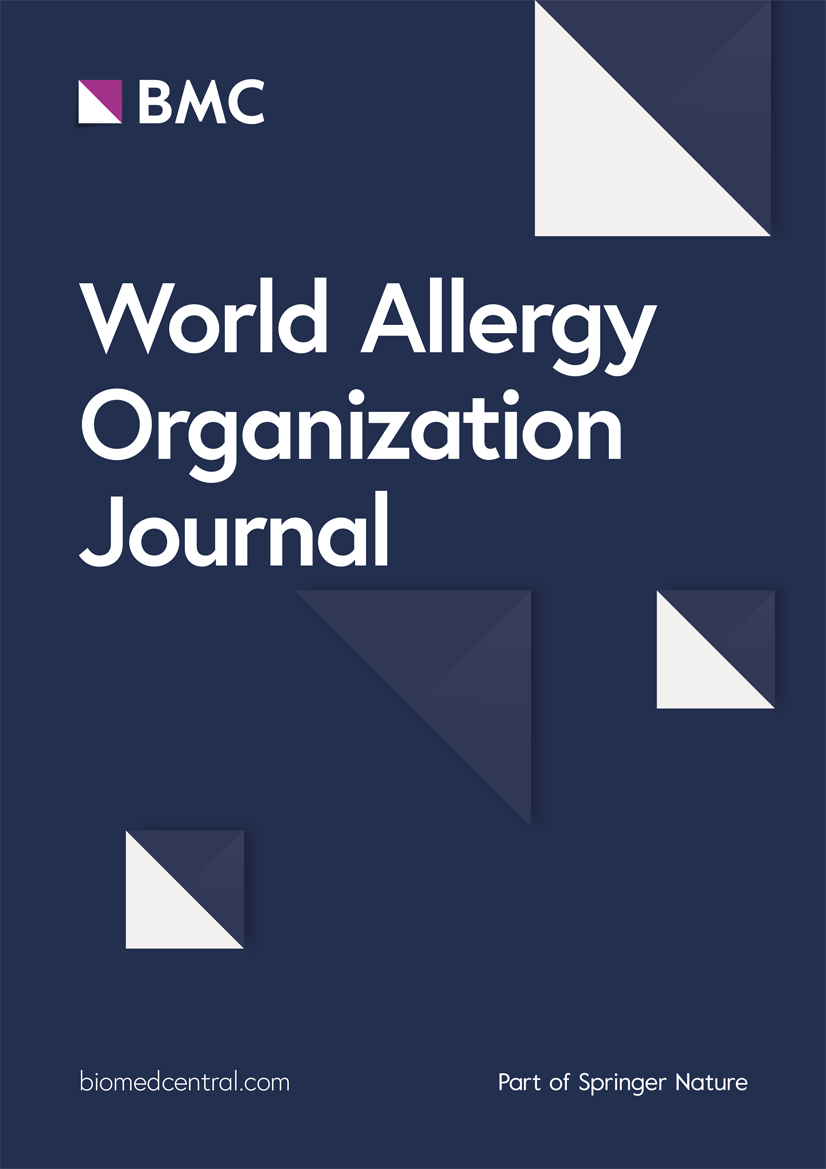特应性皮炎的发生、进展和过敏原免疫治疗:德国的一项真实世界的回顾性队列研究
IF 4.3
2区 医学
Q2 ALLERGY
引用次数: 0
摘要
背景:过敏原免疫治疗(AIT)是目前唯一可用于过敏性疾病的因果性和预防性疾病改善治疗方法。然而,必须承认,由于研究过程中的特定标准和监测,对照研究具有固有的结果偏倚。因此,这项真实世界证据(RWE)研究旨在分析不同类型AIT的大型纵向处方数据,以评估对特应性皮炎(AD)进展和发病的治疗效果。方法基于德国法定参保患者的IQVIA™LRx处方数据进行分析。该研究共纳入122600例患者,我们从2008年至2017年确定了房尘螨(HDM),草(GR)和早花树(EFT)的AIT处方。我们将AIT组与对照组进行比较,对照组从未接受AIT治疗但至少有2种症状性变应性鼻炎(AR)药物处方的患者中选择。我们使用对症性AD药物测量了AIT治疗对AD的影响。结果与对照组相比,使用所有三种形式的AIT导致AD药物治疗的必要性显著降低。此外,在研究开始时未出现AD的患者中,与未接受AIT的过敏患者相比,AIT可显著降低后期发生AD的可能性。结论本研究结果证实了AIT对AD患者的积极作用。本研究结果说明了RWE研究作为进一步分析AIT作为疾病调节剂的手段的价值,从而为临床研究提供了一个补充视角,并在未来提高AIT的疗效。本文章由计算机程序翻译,如有差异,请以英文原文为准。
Atopic dermatitis occurrence and progression and allergen immunotherapy: A real-world, retrospective cohort study in Germany
Background
Allergen immunotherapy (AIT) represents the sole causal and preventive disease-modifying therapy currently available for allergic diseases. However, it must be acknowledged that controlled studies feature inherent results bias due to specific criteria and monitoring during the study. This real-world evidence (RWE) study was therefore designed to analyse data on large longitudinal prescriptions of different types of AIT in order to evaluate the therapeutic effect on the progression and onset of atopic dermatitis (AD).
Methods
The analysis was based on IQVIA™ LRx prescription data for statutorily insured patients in Germany. A total of 122,600 patients were included in the study, and we identified prescriptions of AIT for house dust mites (HDM), grasses (GR) and early flowering trees (EFT) from 2008 to 2017. We compared AIT groups to control groups, which were selected from patients not treated with AIT but with at least 2 prescriptions of symptomatic allergic rhinitis (AR) medication. We measured the impact of AIT treatment on AD using symptomatic AD medication.
Results
The use of all 3 forms of AIT resulted in a significant decrease in the necessity for AD medication when compared to the control group. Moreover, in patients who did not present with AD at the outset of the study, AIT was observed to significantly reduce the likelihood of developing AD at a later stage, in comparison to allergic patients who were not subjected to AIT.
Conclusion
Our results confirm the positive effects of AIT in patients with AD. The findings of this study illustrate the value of RWE studies as a means of further analysis of AIT as a disease modifier, thus providing a complementary perspective to that gained from clinical studies and enhancing the efficacy of AIT in the future.
求助全文
通过发布文献求助,成功后即可免费获取论文全文。
去求助
来源期刊

World Allergy Organization Journal
Immunology and Microbiology-Immunology
CiteScore
9.10
自引率
5.90%
发文量
91
审稿时长
9 weeks
期刊介绍:
The official pubication of the World Allergy Organization, the World Allergy Organization Journal (WAOjournal) publishes original mechanistic, translational, and clinical research on the topics of allergy, asthma, anaphylaxis, and clincial immunology, as well as reviews, guidelines, and position papers that contribute to the improvement of patient care. WAOjournal publishes research on the growth of allergy prevalence within the scope of single countries, country comparisons, and practical global issues and regulations, or threats to the allergy specialty. The Journal invites the submissions of all authors interested in publishing on current global problems in allergy, asthma, anaphylaxis, and immunology. Of particular interest are the immunological consequences of climate change and the subsequent systematic transformations in food habits and their consequences for the allergy/immunology discipline.
 求助内容:
求助内容: 应助结果提醒方式:
应助结果提醒方式:


